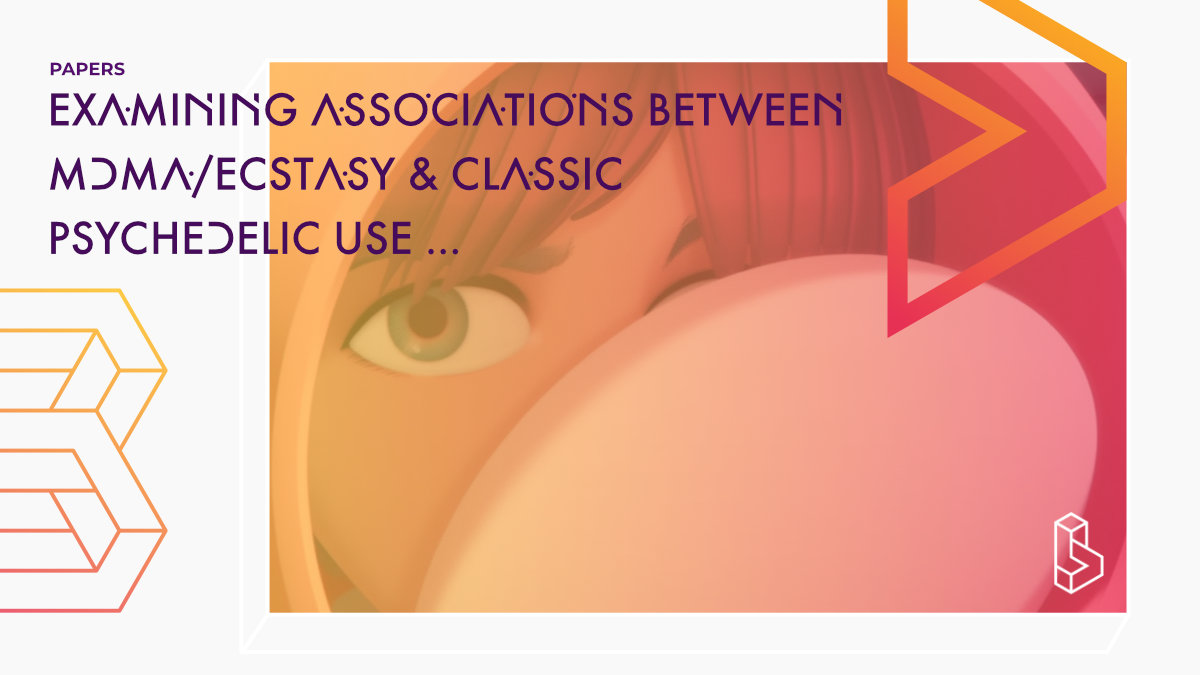This survey study (n=214k; NSDUH) finds lowered odds on three out of four social impairment measures in those who use MDMA (lifetime use; correlational). Only mescaline also showed a relationship with reduced odds of difficulty dealing with strangers (one of the measures), but other (classical) psychedelics studied showed no relationship with the social impairment measures.
Abstract
“Impairment in social functioning is a common source of morbidity across many mental health disorders, yet there is a dearth of effective and easily implemented interventions to support social functioning. MDMA/ecstasy and classic psychedelics (psilocybin, LSD, peyote, mescaline) represent two potential treatments for impairments in social functioning, as evidence suggests these compounds may be supportive for alleviating social difficulties. Using a nationally representative sample of U.S. adults from the National Survey on Drug Use and Health (2015–2019) (N = 214,505), we used survey-weighted multivariable ordinal and logistic regression to examine the associations between lifetime use of the aforementioned compounds and impairments in social functioning in the past year. Lifetime MDMA/ecstasy use was associated with lowered odds of three of our four social impairment outcomes: difficulty dealing with strangers (aOR 0.92), difficulty participating in social activities (aOR 0.90), and being prevented from participating in social activities (aOR 0.84). Lifetime mescaline use was also associated with lowered odds of difficulty dealing with strangers (aOR 0.85). All other substances either shared no relationship with impairments in social functioning or conferred increased odds of our outcomes. Future experimental studies can assess whether these relationships are causal.”
Authors: Grant Jones, Joshua Lipson & Erica Wang
Summary of Examining associations between MDMA/ecstasy and classic psychedelic use and impairments in social functioning in a U.S. adult sample
MDMA (“ecstasy”) and classic psychedelics are promising avenues for further exploration of potential treatments for impairments in social functioning. This study explores possible protective associations between MDMA/ecstasy and impairments in social functioning in a naturalistic context.
MDMA/ecstasy is a synthetic amphetamine compound linked to feelings of euphoria and connection, disinhibition, and fear extinction. It has also been related to increased social approach behaviour and cognitive empathy in humans and laboratory animals.
Find this paper
https://doi.org/10.1038/s41598-023-29763-x
Open Access | Google Scholar | Backup | 🕊
Cite this paper (APA)
Jones, G., Lipson, J., & Wang, E. (2023). Examining associations between MDMA/ecstasy and classic psychedelic use and impairments in social functioning in a US adult sample. Scientific Reports, 13(1), 2466.
Study details
Compounds studied
MDMA
Topics studied
Population Surveys
Study characteristics
Survey
Participants
214505
Humans

